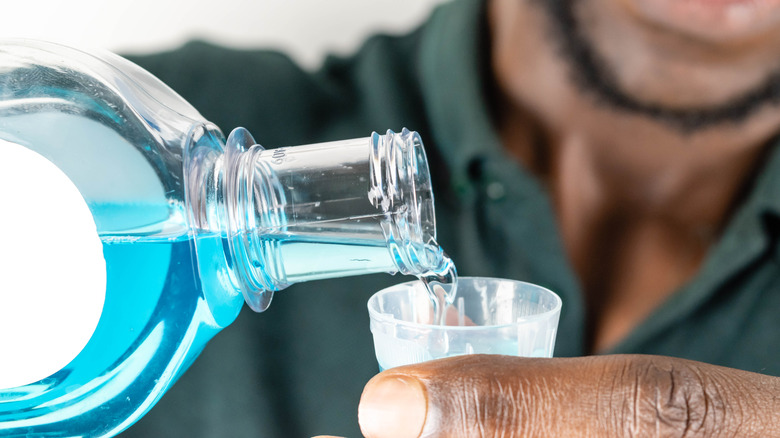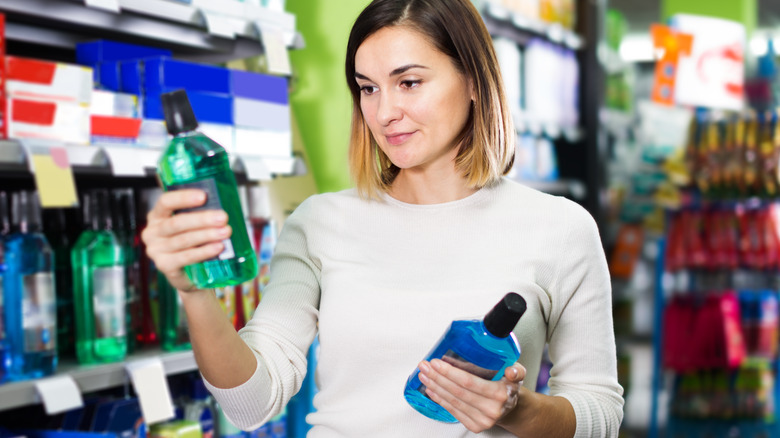Could Mouthwash Be Bad For You?
Together, brushing, flossing, and mouthwash form the ultimate oral health trifecta. Able to get between our teeth, mouthwash can flush our mouth of bacteria and other contaminants that may lead to tooth decay, according to dental expert Dr. Saeid Badie. In this way, mouthwash certainly has health benefits to offer. However, certain ingredients in oral rinses could have adverse effects on our health — in both big and small ways.
Some mouthwashes have an alcohol content as high as 25%, explain experts at Healthline. For some, this can prompt painful burning sensations and discomfort when used. Additionally, alcohol-based mouthwashes may aggravate symptoms of dry mouth.
But alcohol isn't the only ingredient in mouthwash that can cause irritation. If you use a foaming mouthwash, your product may contain sodium lauryl sulfate (SLS). For those who are susceptible to canker sores, this ingredient can heighten the severity of preexisting sores or stimulate new outbreaks.
While one might consider these to be only relatively mild to moderate side effects, some studies show a potential connection between mouthwash and the development of certain health conditions, Dr. Saeid Badie explains.
Potential side effects of mouthwash
Research from a 2019 study published in Frontiers in Cellular and Infection Microbiology points out how a healthy tongue microbiome plays a role in our body's ability to maintain healthy blood pressure (via Reader's Digest). However, an ingredient found in certain mouthwashes, known as chlorhexidine, can kill off this good bacteria.
As per the research, the study team looked at the effects of mouthwash containing chlorhexidine on blood pressure levels of participants recruited from the University of Texas Health Science Center at Houston School of Dentistry. After using chlorhexidine-containing mouthwash twice a day for seven days, researchers saw an increase in participant systolic blood pressure.
In addition, researchers from a 2019 scientific analysis published in Medicina Oral, Patología Oral y Cirugía Bucal examined results from eight previous mouthwash-related studies. Three of the studies indicated a potential link between alcohol-based mouthwash usage and an increased risk for oral cancer.
"The very first thing over 200 million Americans do each day is use an antiseptic mouthwash," lead author of the 2019 blood pressure study Nathan Bryan told Reader's Digest. "These once thought 'good' habits may be doing more harm than good."
However, you don't have to write off mouthwash altogether. As an alternative, Dr. Saeid Badie encourages the use of alcohol-free mouthwash, as these products may pose fewer risks to users.


